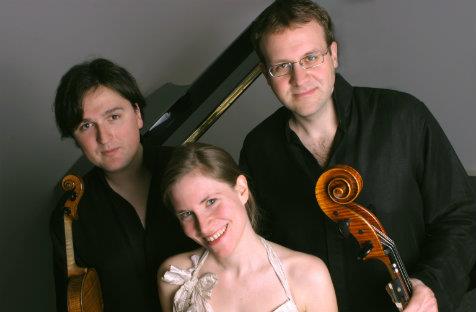I don’t know what it says about me and my professionalism as a critic – presumably nothing good – that I was almost more interested to see what the cellist would do while he wasn’t playing, than what he would do while he was. There is a certain pleasure to be taken in the theatre, for instance, if one averts there gaze from the actor that is speaking and rests one’s eyes on those who are silent (especially those who are not being spoken to). One tries to catch them out, as it were, seeing if they let their character slip when they are not the focus of the action.
But it wasn’t for this that I was watching the cellist, no. Rather, it was because the program told me to. (‘Would you walk under a bus if the program told you to?’ you may ask, to which I’d reply that it would depend on the bus, whether it was moving, and what, if anything, the program had said was underneath.) But it wasn’t a command, merely a bringing-to-notice. The relevant sentence was this: ‘Schumann directs the cellist to unobtrusively retune the bottom C string to a B flat, one tone lower: this allows the cellist to play an otherwise inaccessible long-held pedal (sustained) note in the closing bars, sitting unchanged for thirteen bars, while the other parts embellish around it.’
Well, I wasn’t about to miss that, was I? The subsequent observation was particularly stressful, too, because I’d only read that part midway through the movement it referred to, so I wondered whether I may or may not have missed it. I hadn’t. Emanuel Wehse, not being needed at one point, idly turned his cello round and gave the relevant string a goodly twist, and voila, tuning complete! (It was a bit of an anticlimax, to be honest, like a firework that meows.) Still, credit should go to the Morgenstern Trio and Christopher Moore, who, playing the piece in question – Schumann’s Piano Quartet in E flat major, Op 47 – achieved a prolonged intensity and constant unity that made the work sing, made it feel like the journey it should be.
Unfortunately, the Beethoven Piano Trio no 6 in E flat major op 70 no 2 felt less of a journey and more like a pointless meander. Part of that is the fault of the piece itself, with three moderate movements before the blast of the fourth, but one was underwhelmed by the overarching pleasantness of it all. There’s a lovely quote by George Bernard Shaw, a quote that I’ve completely forgotten (and hence will paraphrase), that’s taken from one of his own concert reviews. He describes a work as a ‘lovely piece, and when I woke up half an hour later, it was still lovely’. Would that this critic could fall asleep when the fancy takes him too, but alas, more is expected of our critics nowadays, and rightly so. The performance itself was perfectly sound, but didn’t enliven these critic’s ears until its final moments, sadly.
Mahler’s Piano Quartet movement in A minor, his only chamber work, began the concert, and was a thoroughly jolting and windswept ride, with its numerous swells and spare eddies. Australian composer Ross Edwards gave an introduction to his famous Piano Trio. In this performance, the opening two movements were well explored, but it was the active third that brought it home, with its familiar maninyas effects that are so pleasing to the ear. An encore was demanded, and was given, and was an incredibly furious fourth movement from a Brahms quartet, whose name eluded the critic, violinist Stefan Hempel having to shout due to a microphone malfunction. Overall a fine, if sometimes less than exciting concert.
Rating: 3 ½ stars out of 5
Morgenstern Trio & Christopher Moore
Musica Viva
Piano: Catherine Klipfel
Violin: Stefan Hempel
Cello: Emanuel Wehse
Viola: Christopher Moore
Gustav Mahler – Piano Quartet movement in A minor
Ludwig van Beethoven – Piano Trio no 6 in E flat major, op 70 no 2
Ross Edwards – Piano Trio
Robert Schumann – Piano Quartet in E flat major, op 47
City Recital Hall, Sydney
22 April





